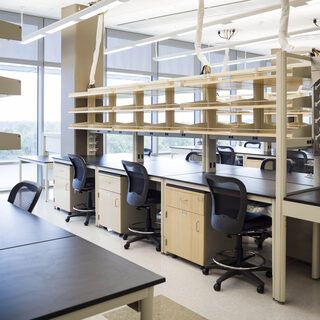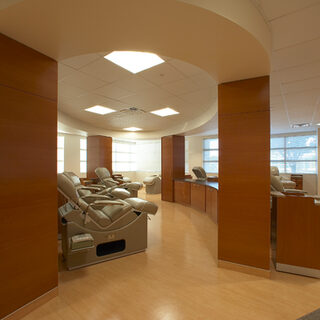Tradeline's industry reports are a must-read resource for those involved in facilities planning and management. Reports include management case studies, current and in-depth project profiles, and editorials on the latest facilities management issues.
Latest Reports
Self-Powered Zero-Emission Education and Research Building Sets New Benchmark for Sustainability
Australia's Griffith University is nearing completion of the world's first zero-emission teaching and research facility powered entirely by photovoltaic solar energy and stored hydrogen. In addition to being a practical demonstration of innovative energy technologies, the $40 million Sir Samuel Griffith Centre will serve as a campus cornerstone and collaborative social hub that integrates business, engineering, and environmental science disciplines around the core issues of sustainability.
UF Research and Academic Center at Lake Nona
The UF Research and Academic Center at Lake Nona is a four-story, 100,000-gsf research, academic, and conferencing facility which enables the University of Florida to continue its mission at the Lake Nona Medical City in Orlando, Fla.
New eBook Available: Management Principles for Building and Operating Biocontainment Facilities
This book is a collection of management experiences, insights, and lessons learned on building and operating high-containment facilities from facility planners, project directors, owners, end users, science program managers, and facility operators who have worked in the high-containment arena for the ten-year period 2002-2012.
Blood Research Institute Laboratory
The Blood Research Institute, with eight core laboratories serving 21 investigator-level scientists, is a state-of-the-art research facility located on the campus of the Milwaukee Regional Medical Center, along with the Medical College of Wisconsin, Froedtert Hospital, and Children's Hospital of Wisconsin.
Translational Biomedical Research Building
The Translational and Biomedical Research Center for the Medical College of Wisconsin (MCW) and the Children's Research Institute (CRI) provide a technically sophisticated facility that supports a broad range of research projects and protocols. The contemporary design enables MCW to expand its research environment, recruit researchers, and secure additional grant money. In addition, the lab building elevates CRI's national leadership profile in pediatric healthcare as it recruits top talent and conducts treatment and diagnostic research.





